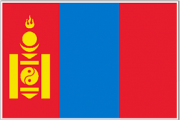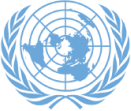STATEMENT BY Ms. Mandkhai Batsuren
Director-General, Department of Multilateral Cooperation,
Ministry FOREIGN AFFAIRS OF MONGOLIA,
AT THE 46th ANNUAL Ministerial meeting of
the Group of G77 and China
“Addressing the food, fuel, and finance crises and pathways towards achieving the SDGs”
(New York, 23 September 2022)
Mr. Chairman,
Mr. Secretary-General,
Honorable Ministers,
Distinguished delegates,
First of all, on behalf of the Government of Mongolia, I would like to express my sincere gratitude to Your Excellency Mr. Bidawal Bhutto Zardari, Foreign Minister of Pakistan for the excellent leadership and efforts as Chair for Group of 77 and China in 2022.
Ever since its establishment, the Group of 77 and China has been providing a platform for the countries of the South to articulate and promote their collective interests and enhance their joint negotiating capacity on all major issues within the UN system and promote South-South cooperation for development.
My delegation gives great importance to the Ministerial meeting’s discussion on the three-dimensional crisis of food, energy and finance, put forward by the UN Secretary-General Antonio Guterres and his Global Crisis Response Group that is very pertinent to the current international reality.
Mr. Chair,
This year has been uneasy as the efforts of the world community to recover from the COVID-19 pandemic were hit by not only by enduring but also unforeseen challenges. The current geopolitical tensions have elevated additional pressures on food security, energy, cost of living and access to concessional financing, which have undermined the achievement of the SDGs and the recovery efforts of developing countries and reversed their development gains of at least a decade.
Like many other countries in the region, Mongolia imports a significant amount of wheat, sunflower oil, fertilizer and other products from the conflict region.
Mongolia sees that one of the ways to tackle the current challenges is the continuous improvement of the food sector. Under the President of Mongolia’s initiative on “Food supply and safety”, the country is working to develop agricultural clusters and food production complexes. The initiative aims to secure the domestic supply of food and support the country to become a food exporter.
On June 7, 2022, Mongolia celebrated the World Food Safety Day 2022 with rich productive discussions and concrete solutions to tackle the national food security, safety and food systems challenges facing the country. The Ministry of Food, Agriculture and Light Industry of Mongolia organized, jointly with FAO and WHO, the National Forum on “Food supply and safety - Food production”, which was attended by hundreds of participants from across the country. The aim of the forum was to further advocate for actions to increase food security and ensure a steady food supply in the years to come.
Mr. Chair,
As we all know, financial conditions in developing countries are still worsening despite the fall in commodity prices and currency inflation. According to IMF, about 60 per cent of the low-income countries are in debt distress or are facing a high risk of debt distress mostly due to the food import bills that have increased by $24.6 billion in 2022.
Economic growth in Mongolia will be moderately higher this year and pick up in 2023 as closed borders reopen and COVID-19 disruptions ease.
In order to give a boost to the development agendas, the Government of Mongolia launched the New Recovery Policy in December 2021. As a medium-term development plan developed in line with the Vision 2050 of Mongolia, the New Recovery Policy aims to solve six key economic constraints, including trade ports, energy, industrialization, urban and rural development, green development and efficient governance.
Recently crude oil prices have increased by around 60 percent and gas and fertilizer prices have more than doubled worldwide. Most countries in the Caucasus and Central Asia, as well as Mongolia, have close trade links with Russia. Russia accounts for 25 percent of the imports for Mongolia, which import mostly energy products and export base metals. In order to tackle these abrupt challenges, the Government of Mongolia revealed its plan to implement a price-capping mechanism to stabilize the prices of basic supplies, such as meat, flour and petroleum.
Mr. Chair,
Mongolia is preparing to present its second Voluntary National Review in 2023 at the ECOSOC High-Level Political Forum and share its achievements and experience in implementation of the SDGs and other national development policies and programs.
Moreover, we expect that the Third UN Conference on LLDC will formulate and adopt a renewed framework for the international support to address the special needs of LLDCs as well as strengthen partnerships between LLDCs, transit countries and their development partners.
My delegation fully supports the principles and positions reflected in the G77 Ministerial Declaration. We need to accelerate progress towards implementing the 2030 Agenda for Sustainable Development through further strengthening the principle of “common but differentiated responsibilities”, promoting South-South and Triangular cooperation, and improving global economic governance.
I thank you.


